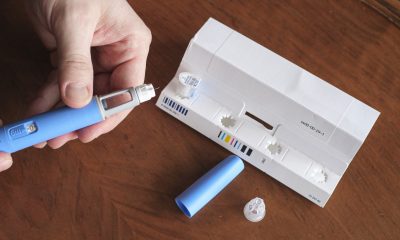A medical expert has sounded the alarm over the worrying surge in strep throat cases among children and adults in Wisconsin. He even deemed the infection the next big health crisis.
Dr. Gregory DeMuri, a pediatric infectious disease physician at UW Health, told TMJ4 Thursday about the severity of the situation.
“This is the next big problem,” DeMuri said of the alarmingly high severe strep infections affecting many people, particularly kids.
According to him, while strep throat infections are seeing a spike, cases caused by the respiratory syncytial virus (RSV) and the flu are dwindling.
While comparing the cases, DeMuri found that the bacterial infections affecting the throat have already hit record-high levels. He’s never seen so many severe cases of strep throat in three decades.
Strep throat is an infection in the throat and tonsils caused by group A streptococcus bacteria that spread via respiratory droplets and direct contact. In rare cases, contaminated food can also transmit the bacteria, according to the Centers for Disease Control and Prevention (CDC).
Generally, strep throat is considered a mild infection. However, it could be very painful when the tonsils swell. Its most common symptoms include fever, pain when swallowing, white patches or streaks of pus on the tonsils, red spots on the roof of the mouth and swollen lymph nodes in the neck.
Antibiotics are administered for strep throat treatment. The medication decreases the period of sickness, relieves symptoms, prevents the bacteria from spreading and hampers serious complications like rheumatic fever, as per the CDC.
Based on data from the University of Wisconsin-Madison’s State Laboratory, strep throat cases saw a huge jump last month. During the week starting Feb. 18, around 40% of strep tests came back positive. A week prior, the rate was at 20% only.
DeMuri said the surge could be due to a new aggressive strain of strep. Another reason he pointed out was the lack of exposure in the previous years due to the lockdowns and restrictions implemented during the COVID-19 pandemic.
The expert said an early diagnosis combined with antibiotics is needed to stop the situation from getting worse. He hopes the cases will significantly decline when the school year ends.














